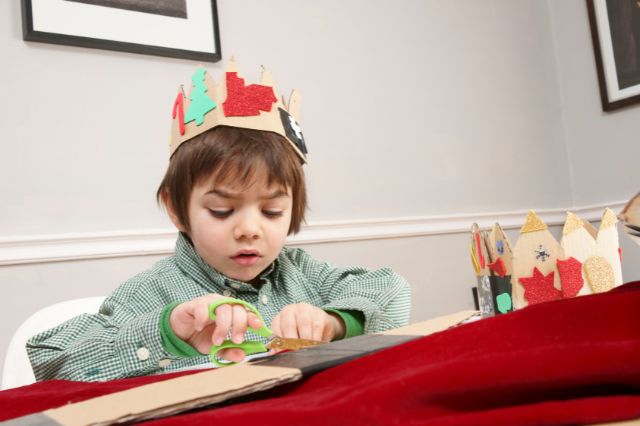How To Get A 4-Year-Old To Do The Homework? (School Work)
We live in a world where kids as little as 3-4 years old also get homework to do. I disagree with the concept. Little kids should not have to study after a tiring day at school. It’s so natural for your 4-year-old to refuse to do homework/schoolwork.
You cannot punish them or let their playtime away just because they are not interested in finishing a task. But you have to get them to do it anyways.
But we have to follow the system, so why not figure out how to motivate a 4-years-old to do the homework in a fun way so they could add it into their playtime?
Once your preschooler enjoys doing the homework or becomes willing to do it, it will get easier for both of you.
Why does your 4-year-old refuse to do homework?
A 4-years-old may refuse to do the homework because he is overtired by doing the same activities in school. He might be more interested in playing than sitting and finishing the work.
Sometimes, parents put schoolwork pressure on the child.
Phrases like, “Ohh! We still have so much homework to do.”
“It’s so much work; please finish it fast.”
“Are you coming to do the homework or not? I will not let you play until you finish it.”
Stress!
Yelling the child for not doing the homework will only do more harm than good.
A simple reason for your 4-year-old refusing to do the homework is they just don’t want to do it because they are tired or stressed.
The second common reason is pushing the child to do the homework whether he wants to do it or not.
Little brains are not made up to handle stress, so make the schoolwork fun for them, so they take it as something they enjoy.

How do you get a 4-year-old to do homework?
Here are a few tips that worked for me to get my 4-years-old to study.
1- Make a routine and stick to it:
The very first thing is the routine. Routine always wins.
By having a routine, your child knows what he will do next.
A routine is different than a schedule. You don’t need to stick with the schedule. Instead, you have to follow a specific routine: a pattern of doing the tasks.
For example, you don’t have to get him to do the work at 1 p.m.; instead, do it after the afternoon snack.
My 4-years-old daughter has a routine of doing the homework right after she reaches home. It was hard initially to get her to work, but now she knows.
She will reach home, go to the toilet, open her school bag, and start working. I usually serve milk while she is doing her work.
We call it a “power drink.” She takes a sip to get the power and writes a letter.
It seemed impossible initially, but after following a routine every day, she now knows what to do.
This post may contain affiliate links. Read our disclosures here.
2- Make homework fun:
The second most important part of getting a preschooler to do the homework is making it more fun.
Without fun, a preschooler can’t sit and finish a task.
My daughter knows her routine, but she will not do a single thing without me engaging her in a fun way.
Here are some ideas:
- Keep a sand timer. For example, the hand2mind multi-colored sand timer. They are entertaining for kids. You can give your kid a target to finish one task before.
The set contains four different timers (1 minute, 2 minutes, 5 minutes, and 10 minutes). Let your kid choose one sand timer and make it a game. Give him a target to finish a task; for example, make him finish writing a line of letters in 5 minutes.
If he finishes before the timer, he gets a great hug.

- Use phrases to motivate him. “You did this task in the classroom? I can’t believe it. Show me how you did it?” Then, spread your eyes and mouth as much as possible. “Wow! This is just amazing. I can’t believe how you learned it.”

- Keep a teddy bear with you and make him cheer with every win.
- Let your child stick a sticker on every completed worksheet. For example, Hallmark Reward Stickers for Kids

3- Be systematic:
Make a plan for your 4-year-old’s homework. Focus and notice what attracts your kid.
Start by doing the easiest task, choose a difficult one, and end with an interesting one.
For example, my daughter quickly writes numbers, so I usually start with them. Then we move to the alphabet, which she finds a bit difficult.
She is interested in her pictopedia word (a simple visual encyclopedia). So I set reading that as a reward. “Once you finish writing the three letters, we will read the pictopedia.”
In the end, I give her a choice, do you want to finish the coloring now or in the evening? She gets to decide based on her mood.
This is the system that works for us. Notice what works for you and make a system.
4- Do not push but motivate:
It is so important to avoid pushing your little one to finish his homework. Instead, motivate him.
Many kids can understand the consequences at this age. Talk to the child and motivate him.
Tell him what he is going to get by studying. Make him understand that after recognizing the alphabet, you will be able to read as mama does.
5- A reward for trying:
If you are using a reward system to help your child stay encouraged to do the homework, please reward him for trying, not for doing things right.
“You tried well. I see how hard you were working. I’m so proud of you. Here’s your reward.”
Make him understand that you acknowledge his efforts. Kids are naturally eager to please their parents. Once he sees you happy because he tried, he will become interested in doing more work.
On the other hand, if you reward them for doing things right, your child will get fed up if he can’t do a task perfectly and eventually leave the homework.
6- Do not refer to homework as an assignment:
It’s simple. Do not tell your child that homework is “work.” He knows it’s work but doesn’t mention it.
He is tiny, and many kids avoid the word “work” or “assignment.” Keep it simple. Use the phrase homework only.
For some kids, changing the name of homework may also work. For example, let’s do this “fun sheet.”
Simply changing the name from “worksheet” to “fun sheet” can make a difference in how your kid sees the task.
7- Ask the teacher to instruct the child before he leaves school:
Kids listen to the teacher more than they listen to their parents. Take advantage here.
Meet his teacher and tell her you are having difficulty getting your little one to do the homework.
Ask her to tell the child to do the homework when he gets home. For example, you choose a routine where your kid will do the homework right after returning from school.
The teacher should say to the child, “Lucas! Please do the homework right after you reach home.”
Preschoolers are usually “fans” of their teachers. So, you can simply ask your child to finish the homework because the teacher said so.
8- Tell the child what’s next after the homework:
Once again, make it predictable for the child what’s next.
Tell him we will watch TV together once we finish the homework.”
My daughter gets her 1 hour of screen time after homework.
Knowing what activity they will get after the homework makes it easier to get them focused.
Remember, the after-activity is not a reward but a part of the routine.
9- Understand the child’s stamina:
A 4-year-old’s attention span is only 10-12 minutes. So, ensure that one subject is done within this time limit. If not, rotate the tasks.
Overall, the homework time for a 4-years-old should not exceed 30-60 minutes. After this time, your little one is likely to lose energy.
Read more: What to do if a 4-years-old is not interested in learning?
Bottom line:
If your 4-year-old refuses to do the homework, it means he is not having any fun doing this activity. So make the homework fun by playing games and setting timers. Choose a routine and stick to it.
Do not pressure the child, no matter what. Instead, encourage him to do the work instead of pushing him to do it.
The reward for trying. Here are a few rewards you can get from Amazon for some cost.







